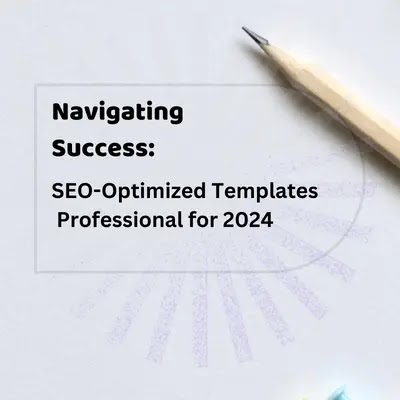 |
| blog101 |
Blogging for beginner: step by step guide how to start blog -blog101
Blogging for beginner : Starting a blog can indeed be a thrilling endeavor, and your success often hinges on the careful consideration of various elements. The step-by-step guide provided outlines crucial aspects from defining your niche to building a community around your blog. Remember that the key to a successful blog lies not only in creating quality content but also in engaging with your audience and adapting your strategy over time. Starting a blog as a beginner can indeed be an exciting journey filled with creativity, learning, and connection. Here's a comprehensive step-by-step guide to help you kickstart your blogging venture:
1. Define Your Niche. Blogging for beginner
Defining your niche is an important first step when starting a blog as a beginner. Your niche is basically the specific topic that your blog will focus on. Here's a more in-depth look at how you can effectively describe your niche:
- Assess Your Skills: Identify Your Interests and Passions.
Start a blog by listing your personal interests and passions. Consider topics that genuinely excite you and that you can envision yourself writing about consistently. It can be anything from travel, technology, fashion, fitness, or a specific hobby. Determine your skill level in the potential niches you have identified. While you don't need to be an absolute expert, having some knowledge or a desire to learn about a niche will make the blogging process more enjoyable and credible.
- Consider Audience Appeal: Research Market Demand.
- Investigate the demand for topics in your areas of interest. Use tools like Google Trends, keyword research tools, and social media platforms to understand what people are searching for and discussing. Think about your target audience. Consider the demographics, interests, and issues of the audience you want to attract. A well-defined niche helps you tailor your content to meet the specific needs and preferences of your audience.
- Assess the Competition.
- Assess competition within potential niches. While a competitive niche may indicate a demand for content, it's important to find a unique angle or niche to set yourself apart. Aim for a balance where there is plenty of interest but not fierce competition.
- Lower Your Focus.
- Optimize your space by narrowing down your focus. For example, if you're interested in fitness, you can narrow it down to "home workouts for busy professionals" or "yoga for beginners." A more specific niche allows you to establish authority and attract a dedicated audience.
- Be flexible: Align with long-term goals
While it's important to define your niche, be open to adaptation. Your interests may evolve, and you may discover new aspects of your place that you find interesting. Let your blog grow organically and don't be afraid to pivot if necessary. Consider your long-term goals for the blog. Your niche should match your ambitions and the direction you see your blog taking in the future. This helps maintain consistency and relevance over time.
Remember that finding the right place is a process of exploration and self-discovery. It's okay to experiment and refine your focus as you gain insight into what resonates with both you and your audience. The more genuine and passionate you are about your chosen niche, the more likely you are to connect with like-minded people in the blogosphere.
2. Choose a Blogging Platform. Blogging for beginner
Choosing the right blogging platform is an important decision for beginners, as it lays the foundation for the structure and functionality of your blog. Here are some popular blogging platforms to consider, each with its own advantages:
- WordPress.org.
Pros: Highly customizable, extensive plugin library, suitable for different types of websites, great for SEO.
Cons: Requires a steeper learning curve than other hosting platforms.
- Blogger
Advantages: Owned by Google, easy to use, no hosting required, well integrated with Google services.
Cons: Limited design options, less features compared to self-hosted platforms.
- Medium:
Pros: Simple and minimalistic, built-in audience, perfect for writing-focused content.
Cons: Limited customization, you don't own your content, possible visibility limits.
- Wix:
Profession: Includes drag-and-drop website builder, beginner-friendly, hosting, and various templates.
Cons: Less control over technical aspects, can have a steep learning curve.
- Square Space:
Pros: All-in-one platform, beautiful templates, user-friendly interface.
Cons: Limited third-party app integration, slightly high price.
- Weebly:
Pros: Drag and drop builder, user friendly, hosting included, suitable for small businesses.
Cons: Limited scalability, less template options than others.
HOW TO CHOOSE
If you intend to make money and have full control, self-hosted WordPress is often the best choice. For blogs focused on simplicity and writing, platforms like Medium may be suitable. As a new to blogging, use prefer user-friendly platforms like WordPress.com, Blogger, Wix, or Weebly.
Choose a platform that can grow with your blog. WordPress.org is highly scalable, making it suitable for long-term projects. this is the most customizable if you want complete control over the design of your blog. Squarespace and Wix also offer a good balance between customization and ease of use.
Main Point Budget:
Consider your budget for hosting and additional features. Some platforms, such as WordPress.org and Blogger, are free, while others may have a subscription fee.
Ultimately, the best platform depends on your specific needs and preferences. Take the time to explore some options, consider your long-term goals, and choose a platform that fits your blogging vision.
Pick a Domain Name. Blogging for beginner
Choosing a domain name for your blog is an important step that contributes to your brand identity and online presence. Here's a guide to help you choose an effective and memorable domain name:
Reflect your niche.
- Your domain name should give visitors a clear idea of what your blog is about. Include keywords related to your niche to make it easier for people to understand the focus of your content.
Make it memorable.
Create a domain name that's effortlessly memorable and straightforward to spell. Steer clear of intricate words, numbers, or hyphens that might cause confusion. Opt for a name that easily sticks in the minds of your audience. A memorable domain enhances the likelihood of visitors returning to your blog.
Choose a unique and brandable name.
- Stand out from the crowd by choosing a unique and brandable domain name. Avoid names that are similar to existing popular websites to prevent confusion.
Consider domain extensions.
- While ".com" is the most common and recommended extension, if the ".com" you want is not available, consider another extension such as ".net" or ".co". However, prefer ".com" if possible, as it is widely recognized and easier to remember.
Keep it timeless.
Avoid trends that may be outdated, as you want a name that will stand the test of a changing industry landscape.Consider your future goals and expansion plans when choosing a domain name. Choose a name that accommodates potential growth and doesn't limit the scope of your blog.
Be creative, but professional.
- While creativity is encouraged, make sure your domain name maintains a level of professionalism. It should reflect your blog's identity and purpose.
Try it out.
- Before finalizing your choice, say the domain name out loud and share it with friends or family. This can help you gauge its ease of pronunciation and overall appeal.
Once you've chosen the perfect domain name, proceed with domain registration through a reputable domain registrar like NameCheap, GoDaddy, or others. Remember that your domain name is an important aspect of your blog's identity, so take the time to find one that fits your blogging goals and resonates with your target audience.
Configure hosting. Blogging for beginner
- Choose a reliable hosting provider to ensure your blog remains accessible to your audience. BlueHost, SiteGround, and HostGator are popular options for beginners, offering affordable plans and easy WordPress installation.
Customize your blog. Blogging for beginner
- Choosing a visually appealing theme is crucial to creating a positive user experience. Choose a clean and responsive theme that complements your content and brand identity. Customize the design, color and layout to match your personal style or brand aesthetic.
Create quality content. Blogging for beginner
Content is king in the blogging world. Start creating valuable and engaging content that resonates with your target audience. Write blog posts that inform, entertain or solve problems for your readers. Aim for consistency in your posting schedule to keep your audience engaged and coming back for more.
Conclusion
Remember, blogging is an evolving process of exploration and self-discovery. Stay flexible, be open to adaptation, and let your blog grow organically. The passion you invest in your chosen niche, coupled with a genuine connection with your audience, will ultimately define the success of your blogging journey. As you embark on this adventure, keep refining your approach, experimenting with new ideas, and most importantly, enjoy the fulfilling experience of sharing your voice with the world.







